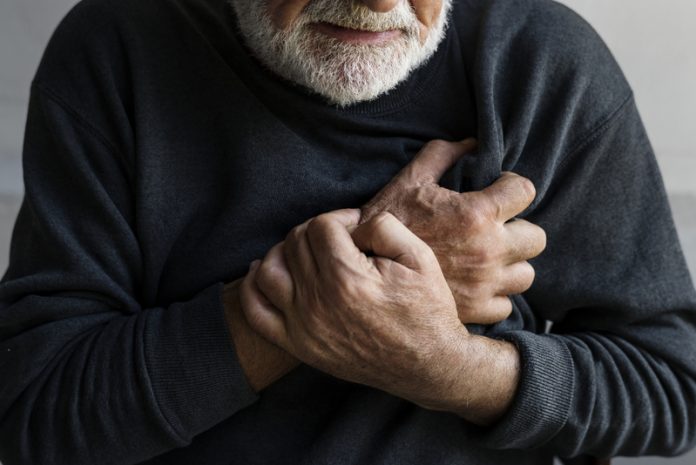Professor Joep Perk, Former President of the European Association of Preventive Cardiology (part of the European Society of Cardiology, ESC) and member of the ESC Advocacy Committee shares his views on the growing problem of cardiovascular disease and why public health measures are needed to tackle it effectively
A mostly preventable and deadly disease is costing the European Union (EU) €115 billion annually, according to the OECD, with four million residents below age 65 suffering premature death each year.
Eighty percent of premature cardiovascular disease – coronary heart disease, angina, heart attack, congenital heart disease and stroke – is preventable, yet the number of cases has been increasing in Europe over the last 25 years.
Having worked in areas of the country where heart attacks are rare, I can say that living a healthy lifestyle without smoking and filled with physical activity and fruit and vegetables is the road to change.
In the mid-1970s I had the pleasure to work for a Dutch development agency in South Africa. I was in charge of an area with 10,000 to 20,000 people and two doctors. There was a lot of work and plenty of unpleasant diseases but uniquely, in three years, I never saw a heart attack in the local population.
I was quite surprised coming from the Netherlands to go to a country where heart attacks were simply not known. Even in the rural area of Zambia, I still have yet to diagnose my first case of myocardial infarction because, in order to survive on your small plot of land, you simply have to be physically active.
So obviously, there are two parts of the world where arteriosclerosis is not a very common disease. And last year in The Lancet there was a lovely paper from Bolivia that looked at Bolivian Indians and the amount of calcium in their coronary arteries and they discovered that these Indians had no arteriosclerosis whatsoever. These populations have few smokers, are physically active (subsistence farmers) and they do not eat junk food.
If people managed their body in the proper way, most heart attacks could be simply eliminated. It is still the main killer in Europe, and throughout the world, so we have a long – but obvious – way to go, as arteriosclerosis is a disease that very much links to lifestyle.
If we eliminate smoking, we already lose 60% of all unnecessary heart attacks. It is so clear, it is so proven that it is almost a bit worn out.
But we see young people start to smoke electronic cigarettes and they are on track to nicotine problems. A lot of these people will go on to become tobacco smokers. Clearly, this battle is not won but remains our first priority.
Even if smoking rates are coming down, there are still many public areas where smoking is allowed, including in streets, and stations, and cars. We need legislation to limit where people are allowed to smoke.
The second and third priorities – physical activity and a healthy diet – are more or less of equal importance but only one-in-six people in Europe are doing the recommended amount of physical activity every day. Life has become too easy for us. So, five-out-of-six of us are not moving around as much as our body demands.
There is a major global outbreak of obesity, with the rate in children growing fastest. We simply eat far too little fruit and especially vegetables.
There needs to be political action to make fruits and vegetables more accessible and affordable to everyone but, due to conflicting interests, prices remain high. The production chain seems to prefer burning the overproduction of fruit and vegetables than put them on the market at lower prices.
In the less wealthy, we see four times as much cardiovascular mortality as in wealthier citizens. And that’s at least partly related by people in lower income groups who are eating too little fruit and vegetables.
We need more research on effective communication strategies. We need new ways of convincing people to adopt a healthy lifestyle. People know what to do. They just don’t do it.
It is never too late to start a healthy lifestyle. And you are never too old to get a good grip on the needs of your body. Things can still improve and can still change, in a 50, 60, or 70-year-old body.
If you take care of your own health, the rewards are significant. It’s a simple thing. You possess a fantastic machine, but you need to know the basic principles of how to use it so that you get the most out of it.
At the European Society of Cardiology, we believe that people should not be alone in this endeavour: public health action can go a long way towards designing health-enhancing environments and reducing the adverse health impact of environmental threats. For this reason, we work closely with policymakers and health stakeholders to foster decision making which is based on the latest scientific evidence.
Our main call is for the EU to implement a structured framework to tackle cardiovascular disease, including targeted action addressing prevention and research, and the use of real-world data for policymaking. This will facilitate an environment where people may live long, healthy lives and where this disease is no longer the number one killer.
Professor Joep Perk
Former President of the European Association of Preventive
Cardiology (part of the European Society of Cardiology, ESC)
Member of the ESC Advocacy Committee
Tel: +33 4 92 94 7600











